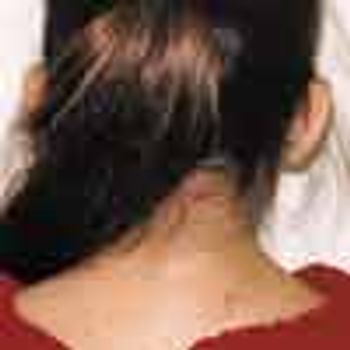
A 6-year-old girl with a nonproductive cough for 4 days and chest pain for 2 days was brought to the emergency department. According to the mother, the child had no fever or wheezing. She had no history of surgery, was not taking any medications, and had no contact with ill persons.

